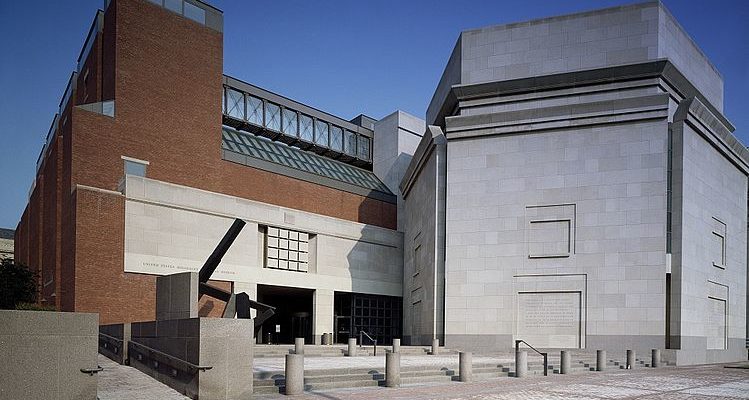In an exclusive interview, Dr. Rafael Medoff, director of The David S. Wyman Institute for Holocaust Studies and author or editor of 19 books about Jewish history and the Holocaust, says that a new exhibit at the US Holocaust Memorial Museum in Washington distorts the history of America’s response to the Nazi genocide.
By: Atara Beck, World Israel News
Q: You and seven other Holocaust scholars have issued a report critical of the new exhibit at the United States Holocaust Memorial Museum concerning America’s response to the Nazi genocide. (The report is available at https://new.wymaninstitute.org/wp-content/uploads/2018/06/Distorting-Americas-Response.pdf ) What was your conclusion?
RM: We found that the exhibit repeatedly and consistently distorts and minimizes President Franklin D. Roosevelt’s failure to help Jews during the Holocaust.
Q: Does the exhibit come right out and claim that FDR didn’t abandon the Jews?
RM: There are all kinds of ways to convey a biased message. You can omit important information. You can use particular language to soften the impact of a quote. You can play up an angle that you prefer and downplay the aspects that don’t support your position. That’s not what responsible historians are supposed to do. But that’s how this exhibit accomplishes its goal of whitewashing President Roosevelt’s Holocaust record.
Q: Your group of historians is critical of FDR and the Museum’s portrayal of him. But surely there are other historians who disagree.
RM: The difference is that the scholars who have contributed to our report are the ones who are actually doing original work in this field, right now. They’re not just historians who happen to have a particular opinion. Their specific area of expertise is America’s response to the Holocaust, and five of them either recently published books on the subject, or have just completed books that are about to be published.
Q: Why didn’t you approach the Museum quietly, before the exhibit opened, to express your viewpoint?
RM: We did. Several of us met, twice, with the curators when they were just starting to work on the exhibit. We shared our latest research findings with them, and we provided documents. They showed very little interest in what we had to say. We came away from those meetings with the sense that the exhibit was going to take a certain line, regardless of what the historical record says.
Q: What is motivating the Holocaust Museum to excuse Roosevelt’s record?
RM: We don’t speculate as to their motives. They are the only ones who can answer that question. We focus on the facts—the omissions and distortions that characterize the exhibit are undeniable. The reason the report is 70 pages long is because there are so many inaccuracies and distortions to analyze.
Q: How do you answer the claim in the exhibit that FDR was unable to do more to help the Jews because he had to focus on the war effort?
RM: It’s a myth that there was a conflict between fighting the war and rescuing Jews. There were many steps that the Roosevelt administration could have taken to interrupt the mass murder or rescue refugees, without affecting the war effort. For example, Liberty ships that brought troops and supplies to Europe, and then returned empty to the United States, could have been used to bring back refugees and give them temporary haven. Or American planes that were already bombing the oil factories at Auschwitz could have dropped a few bombs on the nearby gas chambers, or the railway lines leading to the camp.
Q: One of the Museum’s historians, Rebecca Erbelding—who worked on the “Americans and the Holocaust” exhibit—recently was quoted in the press as arguing that bombing Auschwitz might not have accomplished much.
RM: Twelve thousand Jews were gassed to death every day in Auschwitz at its peak. Even a brief interruption of the mass murder process would have saved many lives. Just because the Allies couldn’t save all the Jews doesn’t mean they shouldn’t have made some minimal effort to save at least some of them. It’s strange that a historian would not consider it much of an accomplishment if thousands of lives were saved as a result of the gas chambers or railway lines being damaged, even temporarily.





